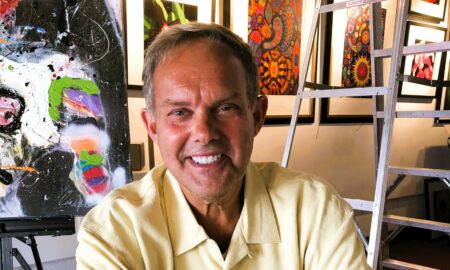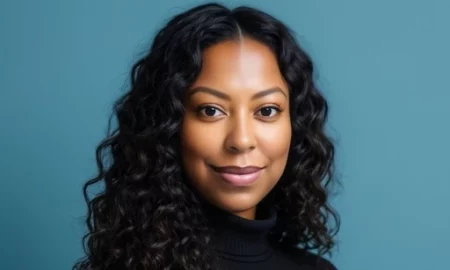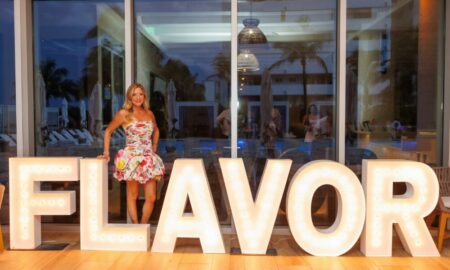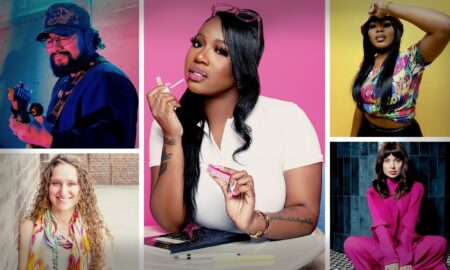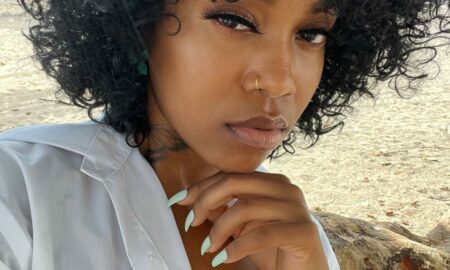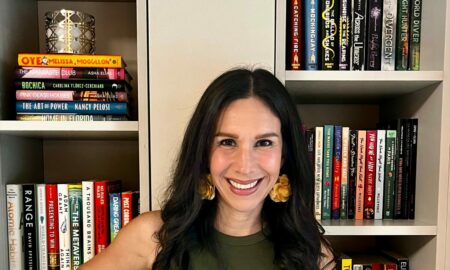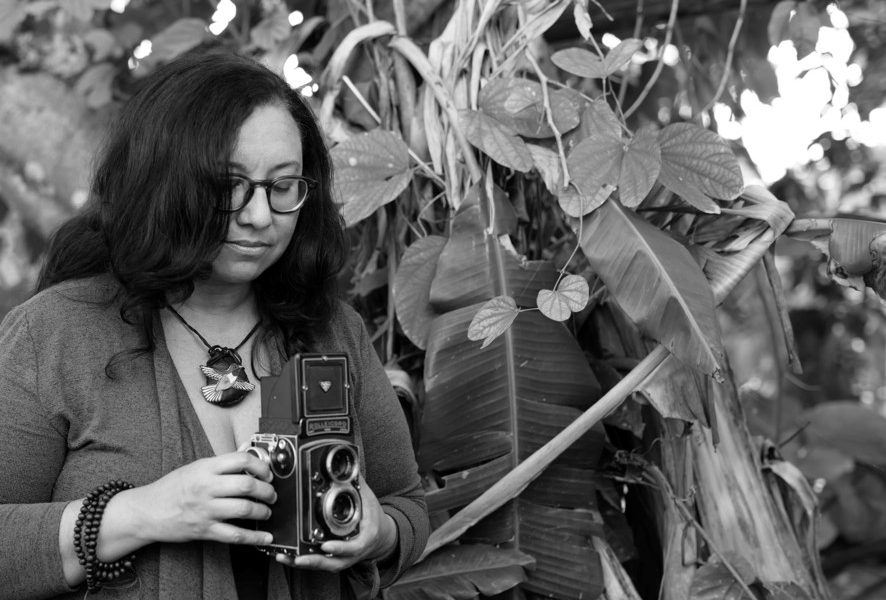

Today we’d like to introduce you to Lisette Morales.
Lisette, please share your story with us. How did you get to where you are today?
South Florida is my home since 2001 but I was born and raised in Managua, Nicaragua. From a young age stories and storytelling have been an integral part of my culture and today they are part of my work. I was fortunate that I grew up in family that valued and encouraged creating art. My mother was an educator and my father was a musician and a calligrapher with a business degree. In that setting I found the freedom to explore different mediums but I didn’t have a camera until 1992 when my friends gifted me one as a birthday present. Since then I have always used photography as reference for my artworks. I studied art and marketing but relegated my career to a secondary role for a long stretch to dedicate my time to raise my children. After going through a traumatic divorce, and at the same time surviving a life-threatening illness, I returned to photography in 2016 as my preferred medium for storytelling.
My photography work merges a variety of my interests in women’s issues, history, social justice, migration, human rights, environmentalism and LGBTQ concerns. I’m a life-long learner and an avid reader. I don’t have a formal education in photography other than one college-level class on the history of photography and a few classes of analog film developing. Photography for me is all about the stories followed by the emotional content and composition. My approach is to see the work as collaborative effort between me and the individuals in front of my camera. Technically I don’t use flash and I don’t do post-processing other than adjusting exposure or cropping. Currently I have one camera and one prime lens. At the moment all my documentary projects are self-initiated and I work on them while I’m off my day jobs. I also contribute to a few magazines on a regular basis.
My first long-term project, Compathy (2016-2018), was inspired by the birth of my daughter Lulu in the early 2000s. She was just a baby when I realized that, outside our family circle and closed friends, she didn’t have many positive visual representations of girls that looked like her in mainstream media. In those years I resigned myself to the idea that all she needed was the love and support of our family. Moving forward to 2016 while digitizing and archiving personal photos I was suddenly reminded of my concerns about gender and racial inclusion in the media. I decided to do some research and located solid data confirming my fears that although Latina representation had improved over the years the numbers were not strong. I decided take matter into my own hands at a small scale and went into my community to identify, record, and photograph Latina narratives. The result is a collection of 22 black and white portraits now on display in the Community Gallery at the HistoryMiami Museum until March 24, 2019.
Great, so let’s dig a little deeper into the story – has it been an easy path overall and if not, what were the challenges you’ve had to overcome?
Certainly, the road of the creative individual is not an easy one at many levels and photography is no exception. It is a field still with few women and even fewer women of color. My biggest challenge has been finding financial support for my projects. I work long days dividing my time between writing grants, seeking guidance from established professionals, keeping up my website, doing field work and maintaining day jobs to put food on my table. You have to be focused and determined. I’m compelled to continue my photography work because I am convinced that we need more women and people of color behind the lens telling our stories from our perspective.
By doing some online searches for women in photography I discovered by chance that some of my local peers belonged to the The Artful Activist on social media. This is a Miami based online community founded by Melanie Oliva. It was through this platform that I was introduced to the work of Johanne Rahaman of Black Florida who has been a great source of inspiration and support in my own career. During the same online search session I landed in the website of Women Photograph created by Daniella Zalcman. Although I didn’t meet this group’s required number of years of professional experience to become part of their database I found them to be very helpful in providing a wealth of information for women entering the photography field. Additionally I reached out and was featured in Fotógrafas Latam created by Lorena Velasco and Andrea Patiño, The Authority Collective a database of women of color and non-binary and more recently Women of Leica.
Alright – so let’s talk business. Tell us about Lisette Morales – what should we know?
What you should know about me is that my work or my call highlights women and their stories. I also enjoy working on editorial assignments because I like the challenge of working in spaces sometimes outside of my comfort zone. I would say that my projects are created on a collaborative basis with the individuals in front of my camera. My process is grounded on the idea that I approach each story with an open mind, flexibility, and sensitivity. I want to promote an opportunity and space for the individuals to open up at their own pace so I can visually record their story as they are entrusted to me. Recently I attended the Miami Photo Fest and at one of the artists’ talk Maggie Steber and Kerry Payne emphasized that listening is probably the most important component of photography which something I have learned by experience. I always remind myself to do more listening as the story unfolds before pressing the shutter.
How do you define success?
I measure my personal success by the level of authenticity in which I lead my life. If at the end of each day I can go to bed knowing that I did the right thing, even though it may not be the most popular, then I think I achieved my personal success. I think that persistence is my favorite word because I have noticed that many of the photographers that I admire are persistent with their work like Johanne Rahaman, Maggie Steber, Julie Dermansky, Mary Ellen Mark, Daniella Zalcman, Graciela Iturbide and many more. To end this interview I hope to have strength to persist in documenting women’s stories, specifically Latinas, in Florida and other places in order to present accurate narratives to replace stereotypical portrayals.
Contact Info:
- Website: www.lisettemorales.com
- Email: lisettesphotos@gmail.com
- Instagram: https://www.instagram.com/lisette_morales/
- Facebook: https://www.facebook.com/lisette33morales
- Twitter: https://twitter.com/lisettesphotos







 Image Credit:
Image Credit:
Personal photo: by Julia Porath, Location: Sean McCabe’s tropical home garden in Naples, Florida, Portfolio photos by Lisette Morales
Getting in touch: VoyageMIA is built on recommendations from the community; it’s how we uncover hidden gems, so if you know someone who deserves recognition please let us know here.










